Mistreated: Faculty of color speak out
They detail microaggressions, poor treatment, lack of accountability
Some faculty of color at the Laboratory Schools say that they are treated poorly by certain white colleagues in their daily experiences, and they say they have limited opportunities to resolve these issues.
A remark from a colleague from three school years ago has been particularly memorable for Person A, a current faculty member of color. The colleague is white. The remark came in the context of a conversation concerning a student who the colleague had taught previously and would enter Person A’s class.
“A white teacher said, ‘You know, the parents are Black, but they’ll like you because you’re Black or brown, or whatever the hell you are.’ And that sat with me the whole time I’ve been here,” Person A said.
Person A’s experience is not unique. Some faculty of color at the Laboratory Schools say that they are treated poorly by certain white colleagues in their daily experiences, and they say they have limited opportunities to resolve these issues.
The experiences of faculty of color vary across the schools and among different individuals. Some faculty of color say they face microaggressions during interactions with colleagues. Some have expressed that white faculty tend to resolve professional disagreement by reporting incidents to the administration rather than seeking direct conversation with the parties involved. The names of some sources in this story have been withheld at their request to preserve anonymity. The experiences documented reflect the views of only a fraction of the faculty of color at Lab and do not represent the experiences of any faculty of color not referenced in the story.
Lab affirmed its commitment to support a diverse student body, faculty and staff in its Diversity Action Plan published in June 2020. At the start of the 2020-21 school year, the school launched a bias reporting system to address harassment, discrimination, prejudice and other antagonistic behaviors.
Diversity, equity and inclusion remains a commitment. In an interview about this story, Laboratory Schools Director Tori Jueds, who joined Lab in August 2021, reiterated Lab’s institutional ambition to address issues of equity and inclusivity.
“We are not unique in manifesting a culture that can make it really difficult for people of color, for women, for members of the LGBTQ+ community, for folks who identify in any respect with historically marginalized groups or backgrounds,” Ms. Jueds said. “We’re not unique in that. But that does not mean that we don’t have an urgent obligation to make that better.”
Yet the concerns of faculty of color come in the context of a series of incidents communicated to the Lab community in the past few years including a social media post from late 2019 that was described as containing racist language and an instance in early 2020 of a high school student using what was described as racist language off campus. The “Black Faculty Response to Recent Events” letter sent to the community following the 2019 incident raised the question of whether Lab’s institutional goals of diversity were actually upheld.
Another current faculty member of color, Person B, said microaggressions have been a contributing factor causing some faculty of color to leave their position at Lab. These microaggressions target personal characteristics such as racial identity and cultural heritage. While the frequency of microaggressions varies among schools, Person B estimated that some faculty of color face three to four racist remarks per week. As an example, a colleague assumed Person B held a support role at Lab.
“This white colleague looked at me and asked me if I was part of the custodial crew, and then asked me if I was the gardener,” Person B said.
Yet another instance involved Person C, another current faculty member of color. Person C said that while the Lab community has been generally supportive, Person C remembered a faculty member suggesting last year that Person C was admitted to the Lab community for identifying as part of a minority group.
“It was a little scary, like ‘Oh is this how, you know, others perceive us at Lab?” You know, are we just a number?” Person C said. “Are we a checklist?”
While faculty of color have avenues to report such incidents to the administration, Person B said they are often not reported. While Person B is comfortable seeking assistance from the principal, concerns deterring faculty of color from reporting these incidents include the potential repercussions of when the action of the report is disclosed to colleagues.
But Micyelia Sanders, a former lower school science teacher who left Lab in January 2022, said in an interview with the Midway that in her experience of reporting racist incidents to the administration, the perpetrators may not be held accountable.
“These teachers will say the N-word. They will hear about incidents of racism and not report it,” Ms. Sanders, who identifies as Black, said. “They will perform incidents of racism and think it’s OK, you know what I mean? It is the lack of accountability at this place that makes it more racist than any place I’ve ever worked at.”
Naadia Owens, a former high school history teacher who identifies as Black, cited an incident with a colleague during the 2018-19 school year, her third at Lab, that she later said made her feel unsafe. She said she reported the incident to human resources, which Ms. Owens said somewhat fixed the situation. But she said other colleagues never checked on her and acted as if the incident “never happened.” Ms. Owens said that among other reasons, her interactions with this colleague contributed to her decision to leave her position at Lab in June 2021.
Ms. Owens said, “I also very much felt like once the issue was over, that the school kind of abandoned me, kind of left me to fend for myself.”
Another key issue that some faculty of color have expressed is the aversion to conversation to resolve professional disagreement. Thomas Toney, the service learning coordinator for nursery to middle school who identifies as Black, said his colleagues sometimes did not extend to him the professional courtesy of a direct conversation when they experienced difficulties working with him or took issue with the DEI conversations he held in class or the books he purchased for his curriculum. In an email response to questions, Mr. Toney wrote that sometimes the concerns of colleagues are not disclosed to faculty of color until they are brought up by an administrator during an evaluation conversation.
“For some reason, colleagues feel like they can’t come directly to you with something that’s in the large scheme of things very superficial and minor,” Mr. Toney said. “That it rises to, like, ‘Let me call an emergency meeting with the principal.’”
Person D, a current faculty member of color, independently echoed Mr. Toney’s experience. When issues have arisen in the past, Person D felt “gaslighted” by colleagues reporting these issues to the administration rather than seeking resolution through a direct conversation. Person D described having to be “super mindful” of tone, clothing and body language.
“As a faculty of color, I feel uncomfortable having hard conversations with my white colleagues,” Person D said, “because they might turn it around and say I was attacking them or being aggressive.”
Middle school principal Ryan Allen, who identifies as Black, said that he mediated issues of race among faculty about once every two or three weeks in the fall quarter of 2021. A measure to bring forward conversations centered around DEI are professional development workshops occurring on the third Wednesday of each month. These workshops are currently organized by Nicole Williams, DEI director.
However, Mr. Allen said that conversations addressing incidents involving a racial component or context can be uncomfortable. While some parties are willing to hold these conversations, others are not.
“I think there’s a fear that that microaggression unequivocally defines them as a person that is racist,” Mr. Allen said. “And so I think that if a person says, ‘Hey, this is a microaggression,’ people are so fearful of being the person that does that. Then, it’s really hard to have a conversation around that microaggression. People don’t want to be labeled or canceled.”
Music teacher Francisco Dean, who identifies as Black, independently expressed that it is very difficult to have conversations about race at Lab. He wrote in an email response to questions that every category of Lab’s membership has contributed to this culture in some manner.
“It’s not just administrators, as some would purport,” Mr. Dean said. “It’s also faculty, staff, students, parents, whites and nonwhites.”
The experiences documented do not reflect those of all faculty of color. Physical education teacher Pete Miller, who has worked at Lab for 22 years, said he has never felt any disrespect from his colleagues in terms of behavior or speech. He signed the 2019 “Black Faculty Response to Recent Events” letter out of solidarity with his colleagues responding to racial issues at Lab. Physical education teacher Michael Moses, a Lab alumnus who has worked at Lab for 31 years, said his colleagues have always treated him with respect.
Some faculty of color are sharing their experiences at Voices of Color at Lab, a faculty affinity group that meets monthly. Its mission is to create a safe space for faculty and staff of color to find solidarity and identify sources of racist policy and ways in which voices of faculty of color are not utilized. Person D has formed a personal support group and has taken opportunities to reach out to new faculty of color to ensure they have a support group from the start.
“I am always uncomfortable at Lab,” Person D said. “There is not one moment when I do not think about how I carry myself and whether I belong here.”




















































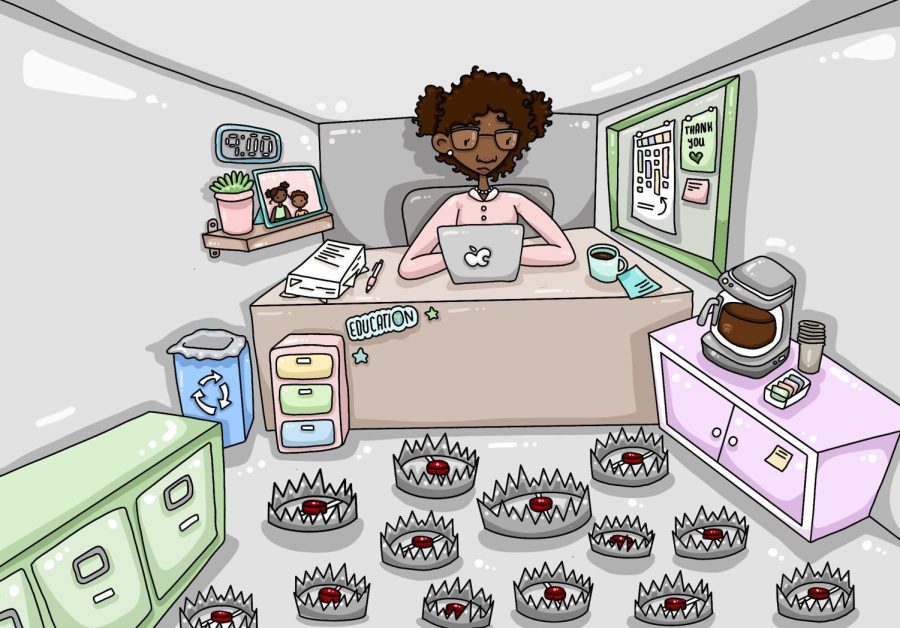
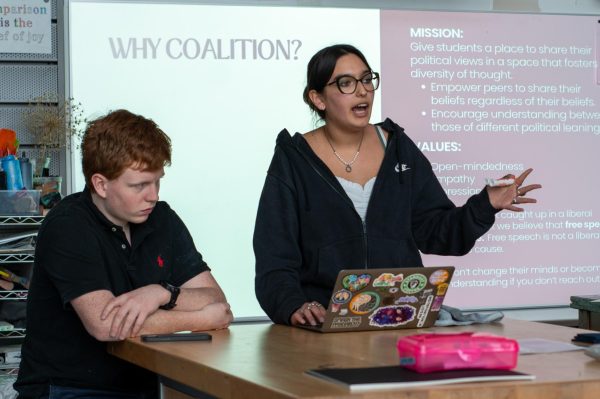
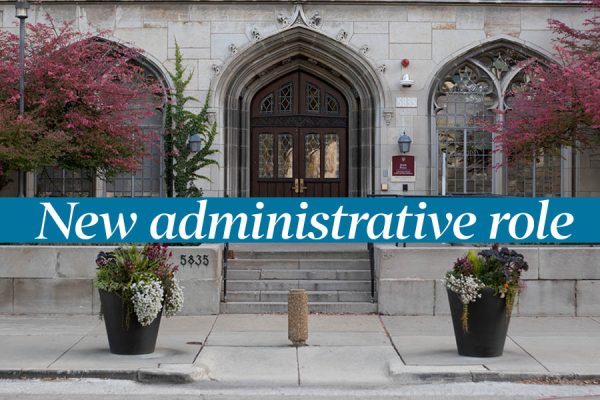
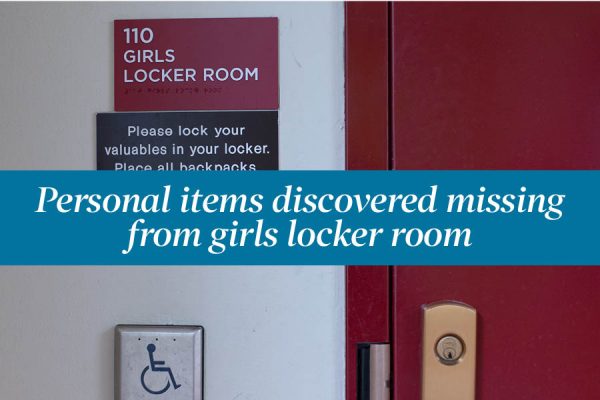
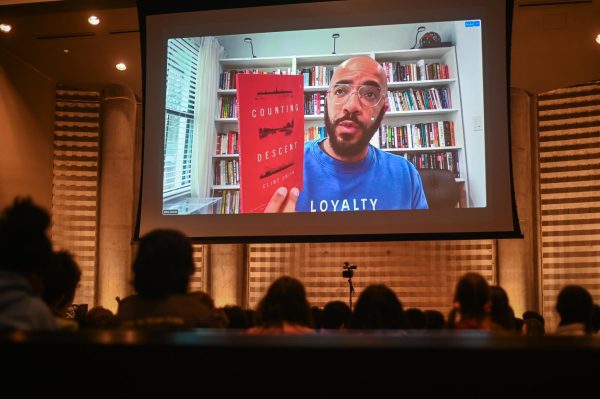
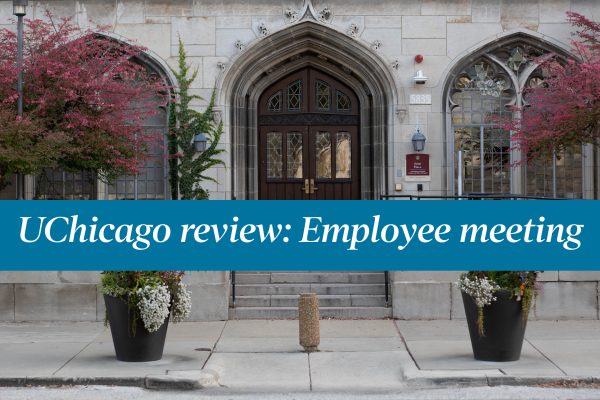
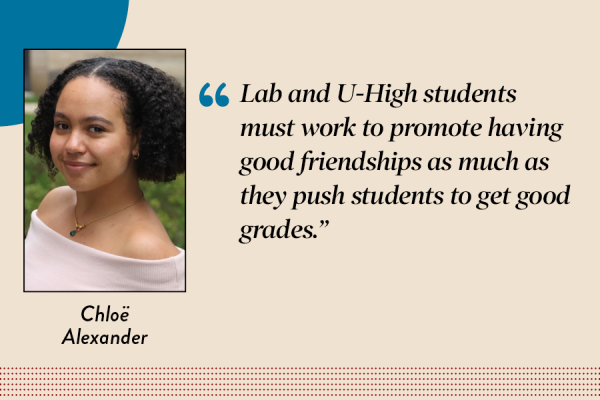

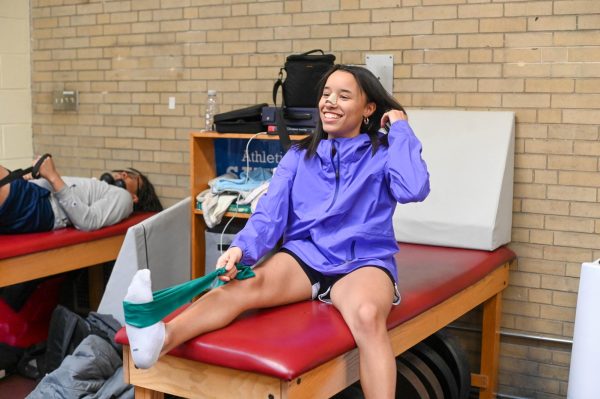
Anonymous • Jun 26, 2023 at 7:57 am
Peter, I wanted to wish you well and to thank you for pointing this issue out publicly. I hope you are doing well in college. Sorry, I didn’t get a chance to see you off.
I would also like to add that this issue is larger then even you point out. It is not just the racism buy classism towards 1st gen faculty as well. We are all treated as if we should be grateful to simply be at UofC, not only are the micro aggressions out of control, but actual open aggression is more common than anyone will admit to. I personally have been assaulted by other teachers in the hallways and accused of trespassing, even as I’m wearing my ID lanyard. The excuse is always the same, “you don’t look like you belong here”. I have seen this done to others as well, along both race and class lines. DEI at Lab seems performative and serves only to protect the perpetrators by teaching them to be more circumspect in thier harassment.
Anonymous • Mar 25, 2022 at 10:38 am
As a former employee, this is what happened to me at LAB & the entire U of C campus/hospital (where I worked) and EVERYDAY of my life. There is no refuge or peace from these same types of behaviors. Maybe now some will understand since it’s written from a University of Chicago Laboratory point of view and not just a black person.
Loretta • Mar 17, 2022 at 9:10 pm
Thank you, Peter, for your courage & truth in your story. I been at Lab for 24 years and seen a lot & heard a lot. I shake my head in dismay because people of color here still have this issue. That is Truth! I want to believe that it will get better but at this time, I just don’t see it happening any time soon. Two years ago, when a racial issue came up among the Lab students, I expressed my love for Lab colleagues and students. I mentioned about where racism would lie for our generations of color in the Future. Now, I seriously question just WHO is genuine with WHO I am? With all that I read in this article, where is the Diversity here at Lab? The DEI have brought people here (like Dr. Bettina Love) last year to educate employees here about racism. Where did it get us? Was her visit and Truth of Facts all in vain? You see there is a difference between Hearing & Listening. Everyone who was on her Zoom meet Heard but were they really Listening? When you’re listening, you actually put what you’re learned into Action. BTW, I am black and I am Loretta Palmer; not Anonymous. Silent Voices cannot be heard so I say with a joyful spirit, I am proud of who I am and no one can ever take that away. As Dr. Bettina Love stated, “Leave us alone because we gone be alright!” In other words, you can’t change me and guess what, I can’t change you! I just thought I would throw that out there and hopefully, someone will catch it later.
Anonymous • Mar 12, 2022 at 5:02 pm
Wow…I love this article. bell hooks talks about institutions in a capitalist, imperialist, racist, white supremacist context and of course Lab school is just one of many.
I thank you for starting the discussion on microaggressions. There’s a lot of work to be done in this area. As Mr. Allen implies, perpetrators of microaggressions need a means of dealing with them without being perpetually thought of as a racist or white supremacist. Otherwise they will continue to deny that they ever have made them…
Being told to clean as a coteacher, being talked over when co presenting or being told that everyone is going through problems (so don’t use your problems as an excuse to complain or be mediocre) — these have been my experiences teaching at Lab during my short tenure. I not only view these experiences as racist microaggressions, but I also view them as a consequence of living in a white supremacist society.
In a white supremacist society, whites speak first and blacks must get permission to speak and speak in line with aligns with their low societal given role. Adults are treated like children and stripped of their right to freely be equal. Whites are in charge and blacks have no real authority (even if they are given a token position). We must perform as worthy to be in white space and there is no space for blacks to be mediocre or human…unless they want to be rejected.
The challenge is that the individuals who perpetuate white supremacy don’t realize that they are doing it until the situation has occurred. Perhaps one could deal with a couple of microaggressions a month. But imagine a couple a week? After a year or more I understand why people quit.
So this is a great article…hopefully it will lead to the retention of black professionals at Lab school.
Robert • Mar 11, 2022 at 1:14 am
i can’t believe the teachers are going through this bs too. lab was not at all a good place for its black and poc kids when i was there so i’m disappointed but not surprised that faculty have to deal with it too.
Debra • Mar 10, 2022 at 5:14 pm
Thank you for this important article!
Becky Lopez • Mar 10, 2022 at 9:10 am
Thank you for writing this article. It is painful to read, because it accurately represents the experiences I have suffered here at Lab. In my case, White administrators and white faculty at Lab school collude with each other to “cover up” their microaggressions and direct transgressions. The more training Lab gets in DEI, the more White faculty learn to be “skilled racists.” White admin and white faculty “perform” and say what they know “sounds DEI” but their mistreatment of us BIPOC groups continues with no accountability. Lab’s office of Human Resources does little to nothing to support people of color. No protection seems to exist for us–or our daughters and sons at Lab.
Anonymous • Mar 9, 2022 at 8:08 pm
Well done Peter! Way to stick with a story that was not easy to report. All of us who were once BIPOC Lab employees and were pushed out or made miserable enough that we say no more are grateful for you!